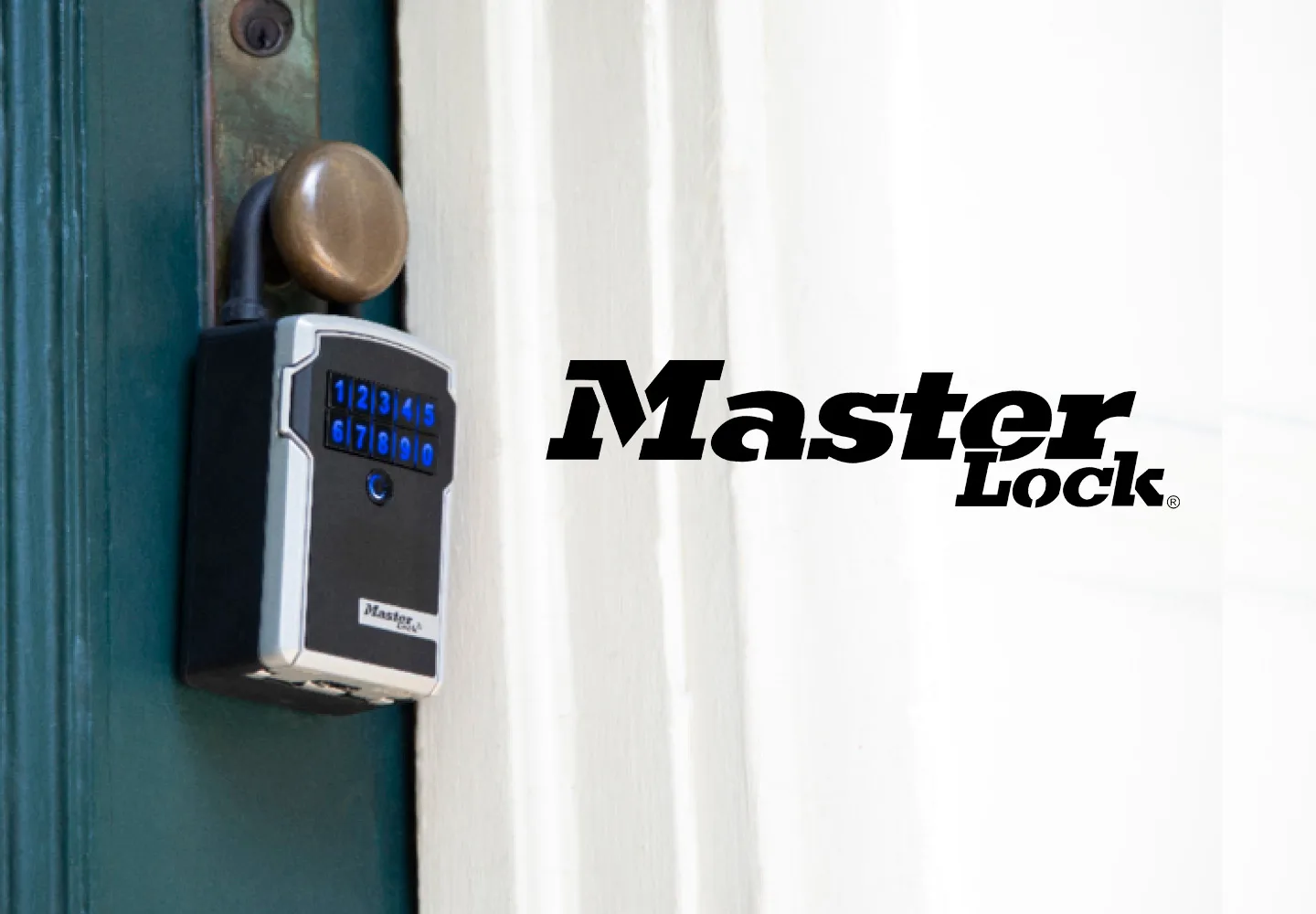In this guide, we’ll discuss:
- How to scout out proper tenants to protect your property
- How to cultivate the kinds of relationships that bode better for peace of mind and work-life balance
- How to innovate your business using technology
- How to use each one of these things (tenants, relationships, and tech) to serve each other just as much as they serve you.
Why does the term “landlord” seem tinged with bad taste? And why does it seem like so many tenant-landlord relationships must start with foul footing and work their way up to a fair shot? Let’s start by acknowledging that the landlords of antiquity certainly and truly gave the term a bad rap. And let us also acknowledge that this unsavory reputation is just as antiquated as the term we still use today.
We’re here to say, loud and proud, that landlords are people, too. People that put a whole lot on the line to empower their tenants to maintain a happy home.
1. Put Your Own Peace of Mind First
We’re on the way to talking about fostering a positive relationship between landlords and tenants, but first we need to state the obvious: people can do very frustrating and upsetting things. Those people could be landlords, or tenants just as well, but unfortunately, it’s just people being people. There are absolutely horror stories on both sides, but we’re just talking to you, dear landlords. We’ve heard the living nightmares – the fish left in vents and quick cement poured in pipes by disgruntled tenants, the looters and vandalizers on the prowl for vacant properties, and the staggering displays of disrespect and cruelty toward property owners. There’s danger in both an empty property and a filled one – if you don’t find the right tenant.
Therefore, the first habit of a happy landlord is to establish a rigid and rigorous procedure to fill a vacant property as quickly as possible without taking on a liability as a tenant. While a property is vacant, certain precautions must be taken. You can’t be in two places at once, and you must rightfully protect what you rightfully own. Doorbell and security cameras are a modern miracle and should be made a priority. Installing a security alarm system that can contact authorities, just as much. If the cost seems daunting, think of the legal fees saved if you could provide video evidence of a break-in, the swiftness of procuring insurance payouts, and the added rental value of offering home security features to your tenants. There may be a monthly fee for that security system, and whether or not a tenant is willing to pay for that kind of security speaks loudly about the amount of respect they have for their property and yours.
2. Value Your Time – Automate What You Can
There are many modern services and platforms designed to save a property owner time and maximize their personal freedom. The best of these modern services can be interwoven to act intuitively on your behalf in a multitude of time-saving ways. The best in the business know that the goal is to “work smarter, not harder.” Sure, that’s a cliché. But clichés become clichés by standing the test of time and unwavering in truth, right?
Let’s start at the beginning then, with filling a vacancy. Listing your available properties with a service that provides background checking weeds out an initial layer of prospective tenants that don’t make the cut. Paring down prospects even further, collecting proof of pay, credit scores, etc., pares back yet another layer. And finally, automated showings for those prospects – the ones that pass background checks and verify their proof of means – weeds out those that aren’t seriously looking to move or interested in that particular property.
With all three of these automations in place – just hypothetically calculate all the time you won’t spend traveling to properties and conducting time-wasting tours. InstaShow provides that 3-1 solution, and touts the safest method through real-time, biometric authentication of each background-checked visitor to your properties. Once a prospective tenant has toured a property on their own, only then is it time for an in-person meeting to check their vibes.
After a vacancy is filled, the automated opportunities continue. SmartHome tools that monitor energy levels, utility and maintenance dates and deadlines add value on both sides of the landlord-tenant relationship. Your tenants’ lives are made easier, and they feel like a higher priority to you because you have reinforced their safety and peace of min. Services like SimpliSafe combine smartphone-accessible security cameras and authority-alerting services in case of break-ins for an all-inclusive solution that means less fees for you to pay and logins for you to remember. As these systems working with each other in harmony, you outsource a multitude of tasks insurmountable for one person to stay on top of. You maximize the amount of time you can spend remote from all the day-to-day maintenance it takes to run a home and household – and this is really where the wealth in property investment lies.
Healthy boundaries are necessary in every kind of relationship, and this is not lost between landlords and tenants. Using a property management service to intervene on your behalf saves a lot of anxiety and shortens the gap between the instigation of an issue and its resolution. Literally, this translates to your phone vibrating a lot less often and saves your focus from being constantly derailed by minor problems that aren’t urgent. To present this thought as a real scenario, consider the benefits of automated rent collection through a property management company or by an automated digital service. That relieves you almost entirely of manual record collection and organization for tax purposes. It relieves you of time and energy spent “chasing a check” and can automatically apply late fees when necessary, or have standard procedures for grace periods when you have tenants in need. In the unfortunate case where penalties are unavoidable, having software detonate late fees means you’ve created a layer of separation between that tenant’s responsibility to pay on time and yourself – which unconsciously aids in our next point.
3. Follow the Golden Rule
It hasn’t changed since kindergarten, it’s right up there with the other biggies like keep your hands to yourself and don’t eat glue, and it isn’t going anywhere. Treat others the way you want to be treated. It was true when you were five and it’s sure as sunshine true now. Apply this rule while you’re renovating or rehabbing a space, for the tenant you hope to come. Take the extra time to make sure contractors are trustworthy, enforce a standard of work and do not waver. Making sure the basics like spackling and painting are done well will prevent pictures of your properties from being posted as examples of “the landlord special” – we’ve all seen the hinges, electrical outlets, and even bugs painted over and left to drive a tenant wild. It sends the message that their living space wasn’t worth the effort. Each and every time their eyes set on that kind of eyesore; the feeling of disrespect deepens within them. Tenants are more likely to treat your property with respect when you’ve set the standard that respect is mutual.
Testimonial from your friend: “ We prioritize relationship building with our tenants, but always in a way that’s mutually beneficial. We know we’ll invest in an annual improvement to our properties in order to increase the overall value and take advantage of opportunities for write-offs – and by simply asking what our tenants recommend for the improvement, they feel so involved and appreciated and we can mark it a win-win.” – J Wes Dixon, Private Landlord
If you must part with a high-quality tenant, make sure to ask them to review their experience. Ask for ways you could have improved their stay on your property and heed those recommendations. Even if a tenant isn’t leaving, many landlords decide to spend a certain amount annually on improvements to increase property value – why not ask your tenants directly where they think improvements would have the most impact? You most likely won’t know when a tenant is considering to move and asking these kinds of questions may make them want to stay longer under your roof.
4. Standardize Communication with Tenants
That Golden Rule also applies to the way you communicate. Whether it’s a face-to-face conversation, an email, or a text, always be respectful. Be friendly, courteous, and patient in exchanging pleasantries, you just might get a tidbit about your tenant’s life that proves to be incredibly useful down the line.
When texting or emailing, skip the lol’s and brb’s. It’s up to you to set and maintain the polite and professional tone that dictates the conditions of your relationship. Be clear in appropriate forms of communication and when you can be contacted. Make sure your tenants know who they can talk to when you are unavailable, as this is crucial to maintaining all remote business as well as your work-life balance. Basically, that is the difference between an absent landlord and a remote landlord.
Present a clear, concise lease agreement. Don’t infantilize your tenant, but do speak plainly. Include ordinances of the principality where their compliance is mandatory – we’ll delve deeper into the importance of this in section five.
5. Run a Business – With a Personal Touch
Seeing tenants as your clients is an effective exercise in improving tenant retention and mobilizing your network as a form of free advertising. From a business-savvy perspective – it’s much more cost-effective to retain a customer than it is to capture new ones. This is so effective because the longer you work with one client, the more rapport you build, and the more
word-of-mouth advertising you receive at no expense. Word-of-mouth has always been, inarguably, the most effective marketing strategy, regardless of the endless iterations of modern marketing techniques and tools. You just can’t beat the intrinsic trust between real people, and when you have a satisfied customer in your corner, they continuously evangelize and endorse your business and you reap the benefit in countless seen and unseen ways.
Thriving businesses know and wield the value of a personal touch. Having automations and outsourced assistance in place is invaluable in saving time, money, and resources, but still, genuine connection and decency is obvious when it lacks, and invaluable overall. Having a calendar of your tenant’s birthdays or move-in anniversaries presents landlords with an opportunity to reach out genuinely without overstepping the boundaries in the relationship. Something as seemingly small as sending a card takes only a few minutes of your time, but translates to your tenants that you are happy to have them and have the time to meet them on a personal plane. This small act carries magnitude and sends a resounding echo through your network of tenants – and through each of their personal networks as well.
Their networks are likely full of folks of similar caliber and character, and could prove very useful when preparing for a vacancy or expanding your investment to new properties. Asking or incentivizing long-term, trustworthy tenants to alert their personal networks can help fill your units, and make your tenants feel important to you.
6. Fortify Your Network
Many first-time property investors run into issues understanding all the rules and regulations of boroughs, counties, and the like. Some people get into the property game because they are travelers – wanting to sow seeds all over the country instead of staying in one place. In that case, you may be faced with understanding the different property and zoning legislations in different states. So, you can hit the books and try to find all the red tape on your own, but you will undoubtedly end up learning from unpleasant experiences which things you missed.
What will save you costly oversight and copious hours of studying and organizing all that knowledge is finding the right folks to add to your network. Local property management services for each residence you own are probably the most well-versed, in addition to smaller-scale local landlords. Asking the right questions at an initial meeting should allow your intuition kick into gear and know whether that particular service would be an asset or a liability to your business and personal wellbeing.
Here are some areas of concern that will quickly prove if a property manager is seasoned enough to actually help you:
- Rules and regulations regarding waste management – are there fines for bringing bins out on the wrong day or leaving them by the road too long?
- What are the standards and procedures for sidewalk and lawn maintenance?
- What are the requirements for trees, shrubs, weeds and foliage on your properties and the consequences of their effect on neighboring properties and public property such as electrical wiring and the street?
- What do tenants need to be aware of in terms of their effect on the environment and community, such as noise restrictions and street maintenance that could affect the parking situation for themselves and their guests?
- Are there any lurking snags or hidden line in the way of necessary inspections and/or fees for renting properties? And are there any penalties for oversight?
Having all this information safeguarded by a trustworthy party is essential for any landlord, whether you are a lifelong local or states away from your properties. This information needs to be nicely, concisely packaged for all your tenants and effectively communicated to them. Crystal clear communication with your tenants’ benefits both sides by preventing oversight and ignorance from causing avoidable predicaments – and could even spare you fault and blame should things go awry. You should include in your lease agreements that failure to comply with local standards and laws will incur costs for all corrective measures and spare yourself that responsibility.
High-quality tenants will see firm communication as a mark of integrity with respect for safety and society. Likewise, those who are offended or rebellious to comply show their hand as higher-risk tenants and give you the opportunity to avoid offering them a lease in the first place. Remember, those high-quality tenants are just as key to a fortified network in this industry as property managers and other landlords.
Conclusion.
Property investment is a wealthy path to follow when you pave the road ahead of you before you take your next step. Starting with a healthy code of personal ethics and conduct is key because landlords who cut corners and offer unfair deals won’t attract the kinds of tenants that will make this business worth pursuing. Building a trustworthy network of fellow investors, property managers, and tenants is invaluable, begins with clear communication and respectable boundaries, and requires transparent contractual agreements and unobstructed insight of local legislations, regulations, standards, and guidelines. Retaining high-quality tenants should be a top priority, as it equates to the most peace of mind you could possibly have in trusting another person to care for your property and treat it with respect.
The ultimate goal in being a happy landlord is to spend the least amount of time running the households in your care. This means that the time you do spend on them must be done in the most effective way. In today’s day and age – that’s through innovative automation. Keep adding to your repertoire of automations and services by combining them in ways that continuously increase their value, and compound and multiply their effectiveness. There are so many ways to save time and money in property investment by spending on solutions that save you time and money. When you feel the stress take effect and tell you that you are working too hard, see it for intuition and know that there is an easier way. All you must do is find it, install it, and take the task off your plate. Just like any empire, a successful business is built by and through effective, educated delegation.





